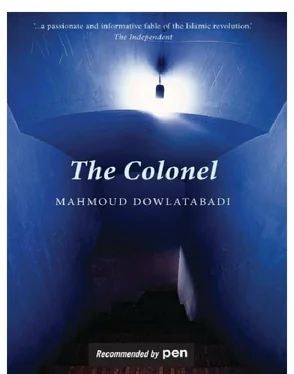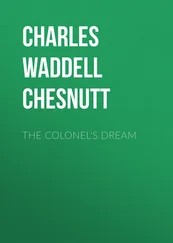“This is the handiwork of your commie chums! They demanded that we publish a list of SAVAK informers!” 26
Without waiting for a response from Amir, he continued in a mocking tone: “So we published them, more than nine thousand names!”
Amir could not lift his head up. This humiliation, deeper than ever, was more than he could bear. Khezr’s show of power and his withering contempt had not just made a fool of him, it had made a complete fool of a whole nation. At moments like this, Amir felt defiled, as if a freezing lake of mud had been poured over him. 27
Etched on Amir’s mind were the countless occasions in his life when Khezr, with his big nose and pea-like eyes, had played a role. He thought of the man who, imitating that poet with the reedy capon voice, had stood on a stool outside the prison gates and sung the praises of the revolution. And he thought of the fisherman who smoked cheap Oshnu Specials on an empty stomach for breakfast, and the glint in the eye of the forty-year-old party leader as he sent young men off to the slaughterhouse of war and despair. And finally his thoughts turned to himself, to the shadow of himself and his fellow men. He made an effort to wipe all the disturbing thoughts from his memory and concentrate instead on the great, important moments… Like when the prison gates were flung open. Where exactly was Khezr, and what had he been doing, when that happened? He now called to mind that Khezr was hardly ever to be seen during the troubles, but that he had reappeared in another form the minute it seemed expedient to do so. Just as he was doing now…

“Won’t you take even one step towards the cemetery? After all, your sister’s about to be buried…”
“I’m tired and I need to sleep for an hour or two…”
“Will you really not come? I would if I were you. Damn it, how many brothers and sisters does a man have?”
No, this man, in his shabby raincoat, this skinny fellow with long, wet hair wandering among the gravestones can’t be our Amir. Anyway, he was curled up in his blanket; he couldn’t have got here by now. No, this man mooning about the rainy cemetery at dead of night, prowling about looking for something that he can’t find, couldn’t be our Amir — or could he? No, it’s not him. Funny, though, he does look like Amir. It must be Amir’s nightmare who’s turned up here. Perhaps I’m seeing my son in his own nightmare. Perhaps… I’m going crazy. No that can’t be it, because what I’m seeing is real, it’s got nothing to do with madness. Otherwise I wouldn’t even be aware that I’m going off my head, would I? There’s no getting round it; that man skulking about the cemetery looks more like Amir than anyone else. It’s got to be Amir. “Amir!”

One rainy evening, at dusk, Amir’s sister Farzaneh had come to see him, bringing modelling clay and plaster and other bits and pieces for his sculpting. the colonel was standing at the window of his room, smoking and staring out at the rain. He could catch the odd word of what they were saying. I don’t think Amir had asked her for any materials . As far as the colonel knew, Amir did not work in the traditional materials that most sculptors used. No, this solicitous gesture must have been Farzaneh’s idea, probably some excuse to come and see the brother she’s closest to and have a chat with him…
This time Farzaneh had behaved quite sensibly. For once, she wasn’t crying, and she had not brought her children with her. And the way Amir spoke to her gave her no opportunity to lapse into her usual gloom.
“You’ve really gone from us, sis. As for me… well, I’m lost. Those who try to find their true role in life are always hit the hardest. Take our father, for instance; in his effort to be true to himself and keep up his standards, he communed with the photograph of The Colonel until his hair went white. And the only reason I’m working on this bust is to get involved with something permanent. I’m in a bad way, little sister. I’m a stranger in my own home! The tragedy of our whole country is the same: we are all alienated, strangers in our own land. It’s tragic. The odd thing is that we have never got used to it. Yet, woe betide us if we do. The irony is that, if you really want to be seen as a good Iranian, and especially if you aspire to high office in this country, you first have to be a foreigner, someone who wasn’t born here at all. On the other hand, if you were born and bred here and try to remain true to yourself, your country and your people, then alienation is the most lenient punishment you can expect. It’s only through being a mouthpiece of foreigners and becoming a foreigner yourself that you’ll be accepted as a native and be honoured and respected. My little sister, I wanted to speak up for my country. I love my country more than anything, but since I no longer speak with the voice of my party I’ve become a non-person, a stranger in my own land. That’s the whole wretched story of our country. I have not been true to myself, my sister, so I am corrupted. That’s why I am thinking of ending it all. But… but not in the way that others have said we shall all end. No, I won’t allow myself to be killed by one of my brothers, although I could certainly bring myself to have their blood on my hands. I already have. No, I shall kill myself and, by doing so, will bequeath them a handicap like a horn on their heads. This may be absurd, but it is the only independent act I am capable of, since we are all done for, or soon will be.”
“Oh yes, we’d just begun to find our feet when they came down on us like a ton of bricks — oh, they really made us pay dearly for that. They kept trying to convince us that our real problem was the enemy within, the snakes in our bosoms, they called them. ‘Kill them, wipe them out,’ they said — ‘they could be your children, your brothers, your neighbours, your friends. Exterminate them. Exterminate them all. Kill your offspring, stamp out life, stamp out resistance. Can’t you see they’re dangerous?’ This wave of vengeance just makes one want to weep. I know that my sister will die, I know that they will cast my brother’s corpse at my feet, and that my father will finally lose his mind. And you will end up being ground up between the yellow, stinking teeth of al-Hajjaj ibn Yusuf. And I know that I shall kill myself, for I have read every line in the book of death, but I shall not weep. I’m not prepared to play the court jester any more, either, putting on a mask of scornful jollity and cracking jokes about the impending catastrophe. No, silence is the only answer… It is with the white blade of silence that I can purify a world that accepts the ruin of an entire people and does nothing. What a price we have to pay, sister, what a terrible retribution!”
the colonel could not hear Farzaneh’s reply. Or had she been struck dumb by surprise and disbelief at her brother’s outburst? But what could she possibly have said in response anyway? Nothing. With her brother in that state, all she could do was shed tears of silent misery.
About an hour passed before he heard her coming up the basement stairs. When she emerged, the colonel was still standing by the window. He saw her sit down by the pond in the yard to wash away her tears. the colonel turned away from the window and paced up and down the room. Expecting Farzaneh to come in and see him, he turned on the light, sat on the chair by the desk and lit another cigarette. He knew that his daughter would not leave without seeing him, however upset she might be by what Amir had said. He also knew that she could expect a stream of abuse, insults and mudslinging from Qorbani Hajjaj, that husband of hers, whenever she went to see her father, but that she took it all in her stride. And he knew that she would probably have brought some tranquillisers for him. the colonel, of course, just threw them away in the pond. But not when she was there — there was no point in upsetting his own daughter.
Читать дальше














